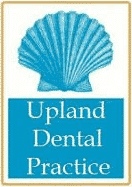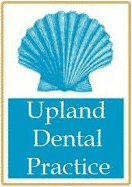Ever wonder what’s behind every well-placed dental crown? A crucial component that holds a crown together is dental cement or dental glue.
What it is and how it works isn’t something every patient would want for us. But we’re breaking everything you need to know about dental crown glue. The benefit?
You get to understand your options, how they work, and what to do in emergencies. Whether you’re preparing for a crown placement or dealing with a loose or fallen crown, this guide offers practical insights!
What Is Dental Glue and How Does It Work?
You might ask if we mean dental cement when we speak about dental glue. The truth is, they are often used interchangeably in casual conversation, but technically, they are slightly different in their application and terminology:
Dental Cement
- A broader category of medical-grade adhesive materials used in various dental procedures, including securing crowns, bridges, inlays, and onlays.
- Often formulated with specific properties such zinc phosphate, zinc oxide and eugenol, polycarboxylate (zinc oxide powder mixed with polyacrylic acid) and glass ionomer cements (GICs).
- Commonly used by dentists for both permanent and temporary applications.
Dental Glue
- A colloquial term that typically refers to temporary or over-the-counter adhesives used to reattach crowns or fix loose dental restorations at home.
- It is not as strong or durable as professional dental cement and is generally intended as a stopgap solution until professional care is available.
What’s the key difference?
Dental cement is used by dentists for long-term or permanent crown attachment, while dental glue often refers to temporary adhesives designed for at-home, short-term use.
Types of Dental Glue for Dental Crowns
Dental luting cements are categorized based on their chemical composition and intended application. Regardless of the type of material chosen, they must exhibit appropriate consistency and a film thickness suitable for the cementation process. These cements may be formulated as oil-based, water-based, or resin-based.
Nevertheless, not all dental adhesives are created equal. Dentists have several options depending on the needs of the patient and the specific crown material.
Here’s a breakdown of the most common types:
Resin-Based Adhesives
- Composition: These are made of resin polymers, offering strong and durable bonds.
- Strengths: Exceptional adhesion, making them ideal for ceramic or porcelain crowns.
- Ideal Use Cases: Recommended for aesthetic crowns because of their clear finish.
Glass Ionomer Cement
- Key Feature: Releases fluoride, which can help strengthen the surrounding tooth and prevent decay.
- Suitability: Often used for patients with higher cavity risks or for crowns placed on back teeth.
Zinc Oxide Eugenol Cement
- Primary Benefit: Known for its soothing properties, making it a go-to for temporary crowns.
- Limitation: While effective for short-term fixes, it lacks the durability needed for permanent solutions.
Hybrid Cement
- Innovative Qualities: Combines the strength of resin-based adhesives with the fluoride-releasing properties of glass ionomer cement.
- Best For: Long-lasting applications where durability and added protection are priorities.
Dentists often consider the advantages and disadvantages of these adhesives. They do this based on specific situations. This ensures that the chosen glue works well with the crown and meets the patient’s needs.
Permanent vs. Temporary Dental Cement
Understanding the difference between permanent and temporary dental cement is crucial for patients who experience crown issues.
- Permanent Cement: Designed for long-term durability, these adhesives create a strong bond that can last for years.
- Temporary Cement: These are weaker by design, used for temporary crowns or emergency fixes. They allow for easier removal when the permanent crown is ready.
Practical Tip: If your crown dislodges unexpectedly, avoid panicking. Temporary dental glue from a pharmacy can be a lifesaver until you visit your dentist. However, it’s essential to understand that this is a stopgap measure and not a substitute for professional care.
How Dentists Choose the Right Adhesive
Dentists don’t take a one-size-fits-all approach when selecting dental glue. Factors influencing their decision include:
- Tooth Location: Molars, which endure heavy chewing forces, require stronger adhesives.
- Patient Sensitivity: For those with sensitive teeth, a soothing cement like zinc oxide eugenol might be chosen.
- Crown Material: The type of crown (e.g., porcelain, metal, or hybrid) dictates the adhesive that will bond best.
For example, a dentist may choose glass ionomer cement for a molar crown on a patient who gets cavities. A resin-based adhesive would be better for a porcelain crown on a front tooth.
On a side note, a study about the choice of cement for single-unit crowns revealed that the decision to bond a single crown was strongly linked to factors like too much tooth preparation on the biting surface, placing the crown on a front tooth, and using glass ceramic crowns.
Can Patients Use Over-the-Counter Dental Glue?
While dental emergencies happen, you should approach using over-the-counter dental glue as a DIY solution cautiously. Here’s what you need to know:
Risks of DIY Solutions
- Over-the-counter adhesives may not be as durable or biocompatible as professional-grade dental cement.
- Misapplication can lead to uneven bonding, causing discomfort or further damage.
Safe Temporary Fixes
If your crown comes loose, follow these steps:
- Clean the crown and the exposed tooth gently with water.
- Apply a small amount of temporary dental glue (available at pharmacies).
- Reposition the crown carefully.
- Avoid chewing on the crown until your dental appointment.
Remember, these fixes are temporary. Consult your dentist promptly to ensure proper reattachment. For more information, you can read this article on what to do if your crown falls off.
Benefits of Modern Dental Adhesives
Dental adhesives have come a long way, offering several patient-friendly advancements:
- Fluoride Release: Helping to protect teeth from decay.
- Durability: Designed to withstand years of chewing and biting.
- Ease of Application: Modern adhesives simplify the bonding process for dentists, ensuring a precise fit.
Patients often worry about safety and allergic reactions. Thankfully, researchers rigorously test today’s dental glues for biocompatibility, providing peace of mind.
Are there any allergic reactions to dental adhesives?
Allergic reactions to dental cements are uncommon, but they can happen. Glass ionomer cements (GICs) contain polyacrylic acid and a fluoride-based glass powder, which can occasionally trigger reactions. Resin-modified glass ionomer cements (RMGICs) include a hydrophilic monomer (HEMA), fluoride-containing glass, and polyacrylic acid, which may also cause sensitivity in some cases.
Tri-cure GICs add a chemical curing process alongside light curing and an acid-base reaction, which could also lead to allergic responses due to the resins involved.
(Source: Dental Cement, Scully’s Medical Problems in Dentistry (Seventh Edition)
Ask Your Upland Dentist
A working knowledge of how dental materials such as dental cement work is a must-have. But remember, the best outcomes come from professional care. If you have problems with your crown, don’t hesitate to talk with our dentist at Upland Dental Practice. Your smile deserves nothing less.


